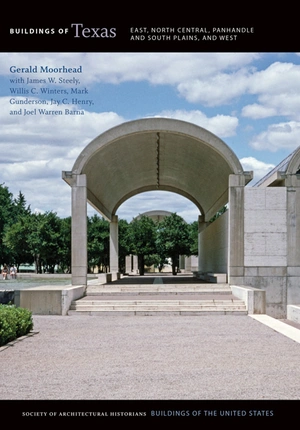
Robert Terrell, for whom the city was named, was a surveyor and landowner. He had this octagonal house built for his family while away serving the Confederacy in the Civil War. It is the oldest house in the county and one of the very few surviving octagonal houses in Texas. Terrell’s interest in the octagon mode can be attributed to the influence of Orson S. Fowler of New York, who touted the benefits of octagonal structures in several publications, including The Octagon House: A Home for All (1853). Fowler praised the octagon for its structural efficiency, as well as its purported proficiency for better natural light and ventilation. The one-and-a-half-story house was built with wood joists cut from cypress logs hauled from Jefferson. In 1915, the house was moved to this location and reoriented, the porch was added, and the dormers were altered to their present shed-roof profile.
Following Terrell’s death in 1881, the house passed to his daughter Lela, whose husband, William Toone, established the Terrell University School (now Southwestern Christian College) in 1897 on land adjacent to the house. The Jack Evans Administration Building, located across the modest campus quadrangle from the Terrell house, was constructed by Toone in 1902.














